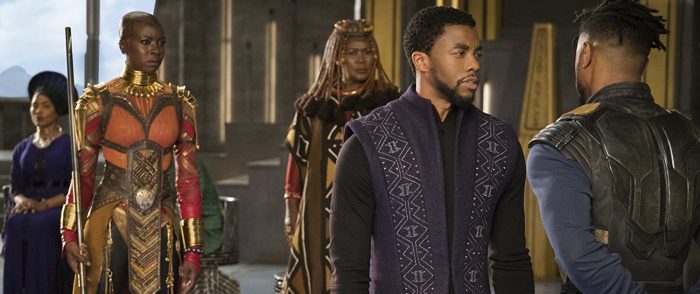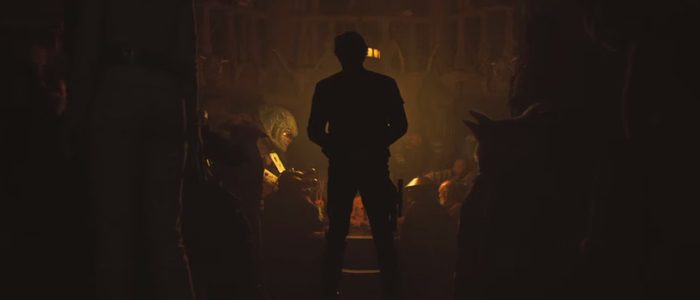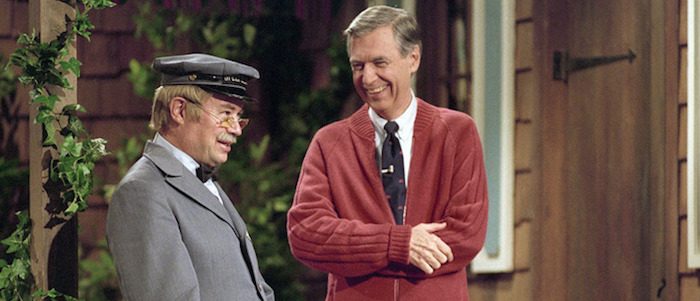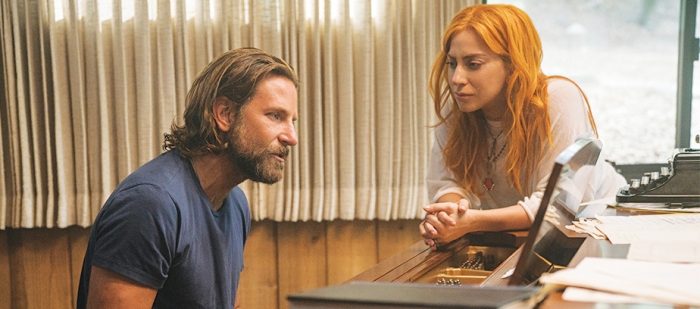
2018 will be remembered as the year the movies didn’t die. After years of stagnation, the U.S. domestic box office actually showed a solid performance, raking in an estimated $11.8 billion, a significant increase over the $10.6 billion it made in 2017. Movies decisively demonstrated that they are still relevant by continuing to become memes, topics of water cooler conversation, and cultural touchstones. People are occasionally putting away their smartphones and leaving their home theater setups to actually go to the movies again.
The year was full of notable moments and trends. Continuing Hollywood’s gravitation towards reliable IP, pretty much all of the top 10 films of 2018 are sequels or titles that are based on existing properties. The strong performance of Aquaman showed that the DCEU film franchise is far from over (despite what the mediocre performance of Justice League might have you believe), while The Grinch‘s huge box office take reveals that there are some stories that people will always turn out for in theaters.
In the U.S., 2018 was also the year of the rise of movie subscription services. MoviePass, Sinemia, and AMC Stubs A-List all vied for supremacy. MoviePass was strong right out of the gate, at one point crossing a staggering 3 million subscribers and proving out that there was actually a market for people who wanted to pay a low monthly fee to watch a bunch of movies. “It’s a MoviePass movie” became a term of art for films that might be worth seeing, but probably weren’t worth paying full price for.
Unfortunately, MoviePass’s lackadaisical attitude towards customer service and consistency led to a seemingly non-stop string of changes, some of which were so egregious they bordered on performance art. Meanwhile, AMC Stubs A-List, with a more sustainable value proposition of three movies per week at $20/month, quietly racked up at least 400,000 subscribers this year, although they’ve already announced at least one price increase for 2019. Whatever MoviePass’s ultimate fate is, it paved the way for a whole new business model of moviegoing. It’s likely we will only see this type of subscription grow in popularity in the years to come.
But what other lessons can be gleaned from 2018? As we like to emphasize in our annual summer movie wager, folks like me often have no idea WTF we’re talking about when it comes to predicting the tastes of the American people. So, keeping in mind that any lessons learned from this year will probably not apply next year, here are some box office lessons from 2018.

1. Diversity is good for business
While Hollywood still has a long way to go when it comes to representation, this was a year that saw many films with diverse casts and crews finally get a chance to perform. And perform they did.
I think most industry observers expected Black Panther would do well, as Disney/Marvel continue to dominate the domestic box office, taking in roughly 26% of domestic receipts by one estimate. But I don’t know that I could’ve predicted it would best every other film this year, including Marvel’s own Avengers: Infinity War. Black Panther made a staggering $700 million at the domestic box office, becoming the top domestic grossing film of 2018.
Crazy Rich Asians was also a big surprise, with a cast largely made up of talented folks who’d never headlined a major movie before. It rode stellar reviews and white-hot word of mouth all the way to a $176 million gross becoming the top romantic comedy in a decade. With other films like Spider-Man: Into the Spider-Verse, Searching, and Creed II all showing promising returns on investment, 2018 continues to show that diversity in films isn’t a liability. It can often be an asset.

2. There’s a limit to how much Star Wars people want
Say what you will about Rian Johnson’s The Last Jedi, but I think most people can agree that it took some real chances with the franchise, pushing it in new and potentially interesting directions. While it still grossed a healthy $620 million last year, it made significantly less than The Force Awakens ($936 million).
The question facing Solo: A Star Wars Story was how much Star Wars can the box office really take. Rogue One was the first non-Skywalker-Saga film to ever release at the box office and still made over $500 million when it premiered in December 2016. Maybe Solo could be similarly successful?
There were many issues with Solo‘s roll out, including the eleventh hour firing of original directors Phil Lord and Chris Miller and the subsequent reshoots taking the film’s budget upwards of $250 million by some estimates. But on top of all this, the film didn’t really do anything new or interesting with the mythology of Han Solo, one of the most beloved characters of all time. Every piece of backstory that it invented was either completely unnecessary, uninteresting, or both. As a result, Solo barely eked out over $213 million domestic, a franchise low that was so cautionary, Disney has announced they’ll be pulling back on future Star Wars films.

3. Maybe Sony can take care of the Spider-Man franchise after all
One success is a fluke, but two might be a sign. After a pair of straight-up awful Amazing Spider-Man movies, Sony had essentially given up on making films about the webslinging superhero altogether, enlisting Marvel’s assistance for Spider-Man: Homecoming and its forthcoming sequel. But Sony wasn’t going to let go of one of the most valuable pieces of IP ever so quickly. They maintained their own designs for the character and his universe, and we saw them come to fruition this past fall.
Initial signs weren’t promising. Venom was beset by reports of studio interference, and its relatively low budget meant that the movie’s production values and set pieces might not be too impressive. In fact, I thought Venom was one of the worst superhero films I’ve ever seen, with a sensibility and storytelling style straight out of the ’90s. But the fact that they finally made a movie based on this beloved character at all, combined with Tom Hardy’s singular performance as Eddie Brock, drove it to an incredible $850 million worldwide.
Only months later, Sony Pictures Animation follows up their global success with Spider-Man: Into the Spider-Verse, one of the best films of the year and one that many people regard as one of the best Spider-Man films of all time. Initial signs also point to this one being a success.
Turns out that competition when it comes to Marvel characters can actually be beneficial.

4. Documentaries can still make money at the box office
2018 was a banner year for documentaries at the domestic box office. Morgan Neville’s Won’t You Be My Neighbor showed that there is still a hunger for the kindness and goodness embodied by Mr. Rogers, becoming one of only a dozen or so documentaries ever to gross over $20 million.
Free Solo ($11.5 million) showed that it’s possible to create a documentary that can be an event film demanding to be seen on the big screen. Filmmakers Elizabeth Chai Vasarhelyi and Jimmy Chin filmed Alex Honnold’s ropeless ascent of El Capitan, creating a movie that is breathtaking, visually spectacular, and worthy of an IMAX re-release.
Between these films and the success of RBG and Three Identical Strangers, the financial viability of the documentary is alive and well.

5. Pop music is alive and well at the box office
I was one of many critics that believed Walk Hard killed the conventional musical biopic. But I was wrong, as this year delivered not just one, but two musical films with extremely dated and well worn plot mechanics that ended up being box office juggernauts. Bohemian Rhapsody, which plays exactly like one of the films Walk Hard ruthlessly skewered, took in $185 million domestic and almost $700 million worldwide, showing that love of Freddie Mercury’s music transcends time and geography (but not necessarily biopic cliches). And Bradley Cooper’s A Star Is Born, while not a biopic, showed that you can take a tale as old as Hollywood and update the songs and the aesthetic to get to a $200 million domestic gross (admittedly, the soundtrack to this movie is insanely addictive).
Other movies with a far lower profile, like Hearts Beat Loud and Juliet Naked tackled music and stardom in ways that were charming and more low key. Even the recently-released Vox Lux (which would top my “Worst movies I’ve seen this year” list, if I had one) is regarded by some as one of the best examinations of pop music in our current era.
The post The 5 Box Office Lessons of 2018: Marvel, ‘Star Wars,’ and Other Cautionary Tales and Stories of Success appeared first on /Film.
from /Film http://bit.ly/2EZIs3Y

0 Comments